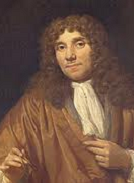Influence of Delft
Delft: the birthplace of Microbiology?
The world of science is a very progressive world; one is trying to understand and control life as much as possible. In iGEM we are even more progressive, we are working in a relative “new” field, called Synthetic Biology. Central in the synthetic biology is the design and construction of new biological parts, devices and system that do not exist in the natural world and the redesign of existing biological systems to perform specific tasks.
These innovative and advanced developments are the result of hours and hours of work done by a lot of genius scientist. However, for every development there should always be a basis. If one would back trace all the innovations to their origin, the basis for all our current lab-work are microorganisms. In that sense, one may consider the discovery of microorganisms as the start of point for all the forthcoming, promising achievements in the field of synthetic biology.
Succeeding with this line of reasoning, one may see Delft as the birthplace of microbiology. Four genius scientists contributed with very important discoveries during these first steps in Microbiology.
This year the Nederlandse Vereniging voor Biotechnologie exist a century and because we are very proud of the important contribution of our Delft’s microbiologists, we would like to pay attention to these four amazing and important scientists.
Scientist's of Delft

Anthonie van Leeuwenhoek
First of all, in 1674 Antoni van Leeuwenhoek looked through his microscope and discovered a totally unknown world, the world of microbiology. These became known due to his correspondence with the Royal Society in London.
Martinus Willem Beijerinck

The second important scientist from Delft was Martinus Willem Beijerinck. He was the first professor of Microbiology in Delft and he is –not for nothing- seen as the founding father of the Delft School of Microbiology.
He was the first person who used the term “virus” for the invisible disease causing material that he had shown to be self-replicating on tobacco leaves –TMV. Beside this, he originated the selective culture technique (now known as enrichment culturing, which is still used!) and was the first to isolate a wide range of microorganisms.

Esmee Joosten
I’m the youngest of the team with my twenty years of life experience. I’m in my third year of the bachelor Life Science and Technology. In my first year I was a member of the study trip committee of Study Association LIFE. I’m currently a member of the Symposium committee which organizes a symposium in the spring of 2012. Besides my study I like to skate and dance salsa. I also enjoy playing the guitar and going to concerts and festivals.
Krijn Warringa

I am twenty-two years of age and I was born and raised in Tilburg. After my VWO diploma I went to Australia for a year of exploration and travel. In 2008 I started with studying Molecular Science & Technology and I settled in Delft. Beside my study I like taking part in commissions and projects. My hobbies are field hockey, golf and I am also interested in philosophy.
 "
"
















